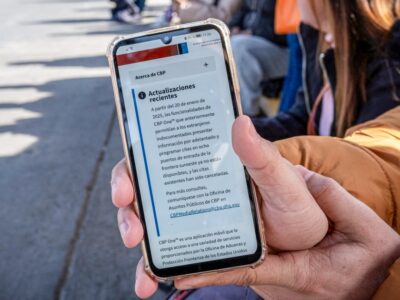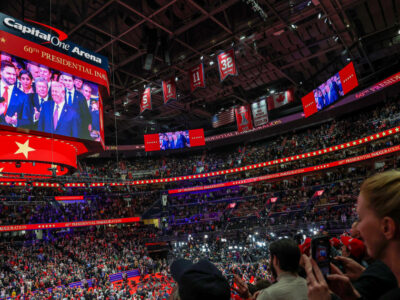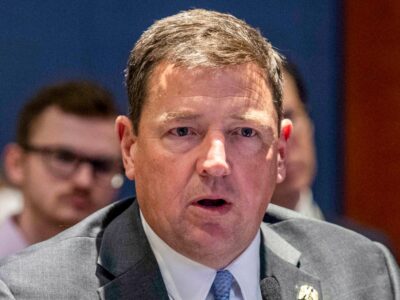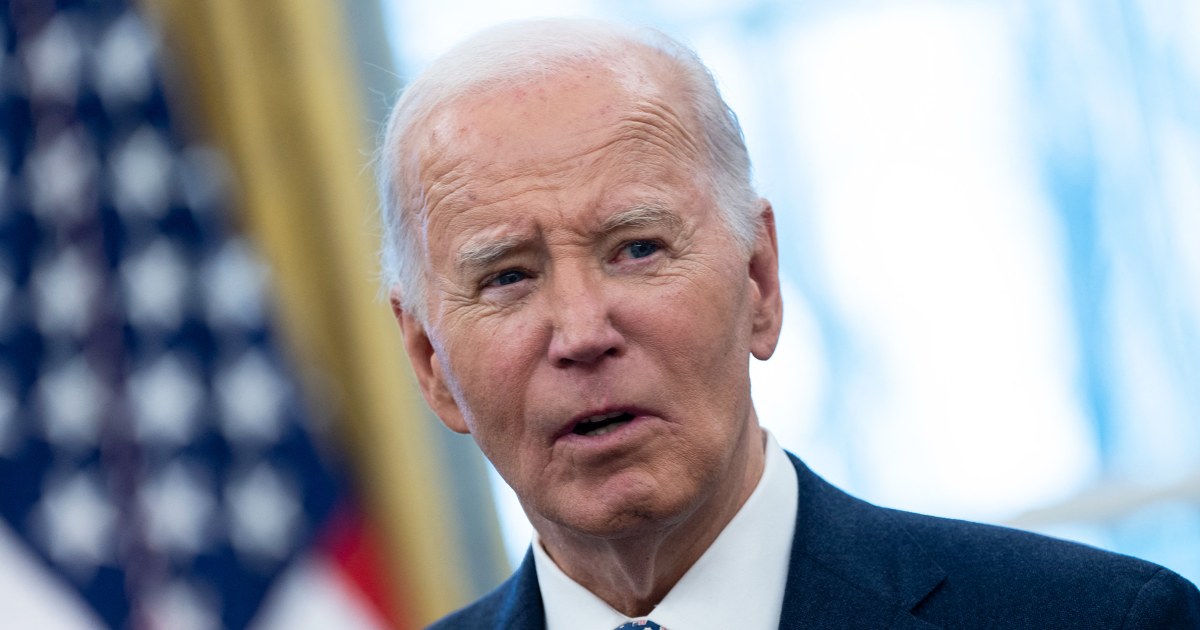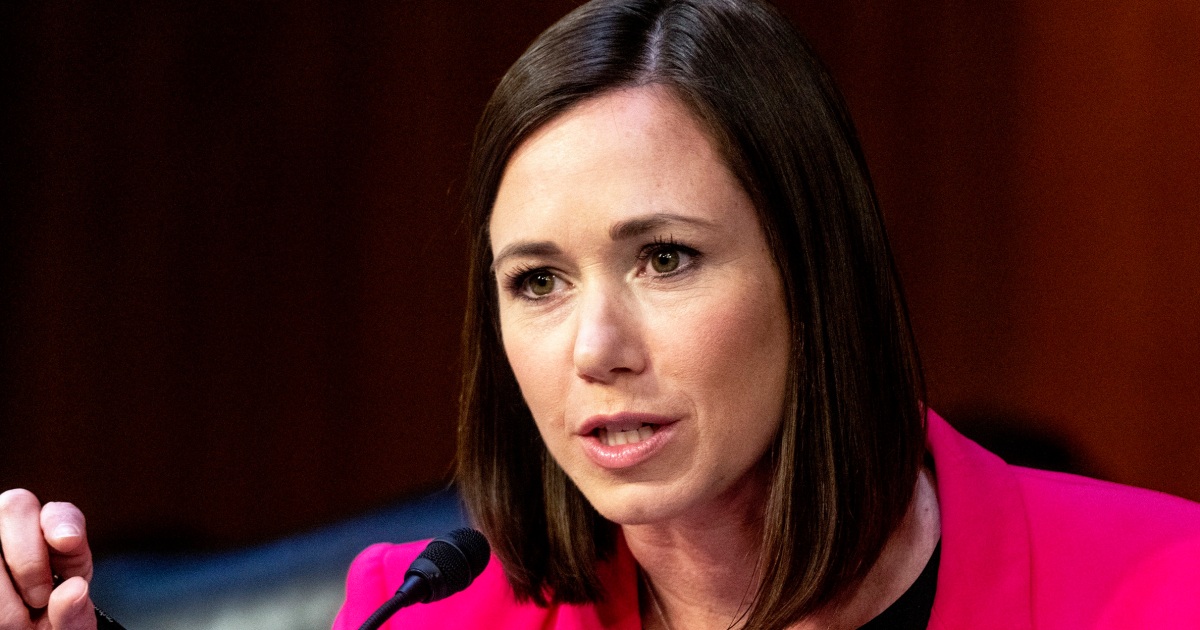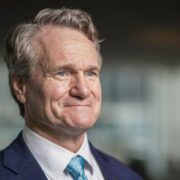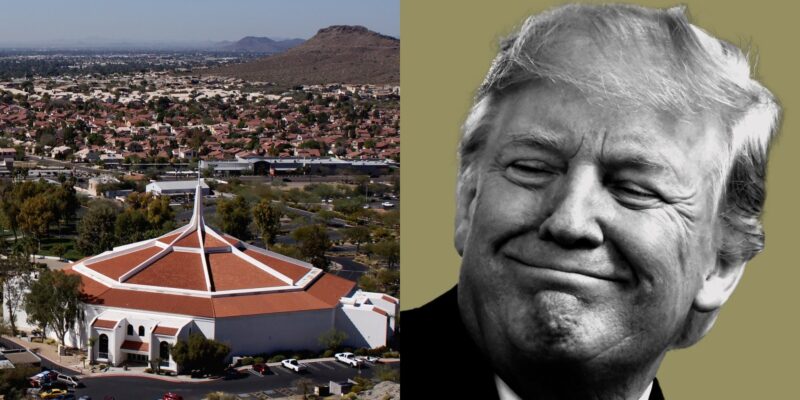
Earlier this month, former President Donald Trump held his first campaign rally as a convicted felon at Dream City Church in Phoenix, Arizona, hosted by the arch-conservative student group Turning Point USA. This wasn’t Trump’s first appearance at Dream City Church; he also held a rally there with Turning Point USA in 2020. For events like this, it’s an ideal venue: A weekly attendance of around 21,000 believers makes this one of the largest churches not just in Arizona but in the nation.
Dream City, which didn’t respond to my questions for this story, is a mecca for special guests who blur the line between religion and politics. Its annual conference has featured notables like musician and pastor Sean Feucht, who participated in a White House prayer session for President Trump in 2019 and is currently leading a tour of prayer rallies at state capitol buildings across the country. The lineup for this year’s event also included David Barton, whose organization, WallBuilders, teaches K-12 students about the supposed Christian origins of America; Jurgen Mathesius, a pastor at San Diego’s far-right Awaken Church, which has become a stop on Mike Flynn’s ReAwaken America tour; and Jentezen Franklin, a televangelist who also spoke at the 2022 Pray Vote Stand Summit, which mobilizes conservative Christian voters to engage in political activism.
In addition to its thrumming weekly worship sessions and its blockbuster events, the church has another project: Dream City Christian Academy. The K-12 private school, which serves nearly 800 students, is part of Turning Point USA’s Turning Point Academy program, a network of 41 schools that describes itself as “an educational movement that exists to glorify God and preserve the founding principles of the United States through influencing and inspiring the formation of the next generation.” Dream City Christian Academy promises to “Protect our campus from the infiltration of unethical agendas by rejecting all ‘woke’ and untruthful ideologies being pushed on students.”
This politically charged approach to education likely isn’t for everyone—and because it’s a private school, it doesn’t have to be. Except for one thing: Dream City Christian Academy is one of a growing number of religious schools that are supported by public funds.
In 2022, Arizona became the first state in which all students are allowed to use state vouchers to cover a portion of tuition at any private school, secular or religious. Through Empowerment Scholarship Accounts, each participating family receives about 90 percent of the money the state would have spent on the child’s public school education—around $7,000 per student per year—for private school tuition. For the 2024-2025 school year, the Dream City Christian Academy annual tuition ranges from $10,450 in elementary school to $13,999 in high school—so families of the school’s nearly 800 students can use state funds to pay for between half and two-thirds of their tuition bill. Dream City Christian Academy received almost $1 million in tuition voucher money last year, the Arizona Republic recently reported.
When Arizona passed the legislation that allowed for private school vouchers, the program was projected to cost $65 million in 2024 and $125 million in 2025. But the most recent estimates put that cost at a staggering $940 million per year, more than 1,000 percent of the initial estimate. The news of the cost overruns came just a few days after two of the program’s leaders resigned, Arizona Public Media reported last July. A report last month from Brookings Institution, the nonpartisan policy think tank, found that Arizona’s program was disproportionately used by wealthy families—even though it was designed to boost the academic achievement of students from families in underserved school districts. As it turned out, families in the highest poverty areas were five times less likely than people in the wealthiest areas to use vouchers.
Dream City Church’s school isn’t the only Christian private school benefitting from Arizona’s new program. Consider Christos Academy, a new project of Great Hearts, a network of public charter schools. On its website, Christos, which has two locations in the metro Phoenix area, assures prospective parents that “through Arizona Empowerment Scholarships and/or tuition-tax credits, attendance at Great Hearts Christos will be within the reach of all families.” Another school, Caritas Academy in Chandler, boasts that ESAs are “greatly reducing, and in some cases even eliminating, out-of-pocket costs to attend Caritas Christian Academy.” On its website, Tucson’s Pusch Ridge Christian Academy says that 90 percent of its students utilize state-funded scholarship programs to pay their tuition. Plus, prospective families can attend school workshops on how to use the programs.
Since Arizona passed its universal voucher law, 10 more states have followed suit. According to an analysis by Education Week, 29 states currently have programs that provide such assistance to a variety of different students many of whom attend local public schools that perform poorly. It also targets those with a disability that requires specialized education and those whose families earn significantly less than the federal poverty level. More programs are in the works: Lawmakers in both Louisiana and South Carolina recently advanced bills that would create programs like Arizona’s that are open to all students. When state funds are available for private school choice programs, a recent Washington Post analysis found that religious schools receive upwards of 90 percent of that money.
Of the 41 Christian schools in Turning Point Academy’s network, 26 are in states with private school voucher programs. Many of the schools in the network are “hybrid homeschool” programs, where students attend in-person several days a week and learn at home on the other days. Turning Point Academy, which didn’t respond to my emailed list of questions, encourages prospective schools to operate in churches, thereby keeping overhead costs low. In keeping with Turning Point USA’s mission “to illuminate the inextricable link between Faith and God-given Liberty,” the academy program promotes curricula about the supposed Christian origins of America. One of its recommended history programs, Patriots’ Catechism, features videos starring Dr. Bill Federer, an author whose books for adults include The Ten Commandments & Their Influence on American Law and Three Secular Reasons Why America Should be Under God.
Rachel Laser, president of the nonprofit group Americans United for Separation of Church and State, traces the rapid expansion of private school voucher programs back to a Supreme Court decision on the 2022 case Carson v. Makin. In a 6-3 vote, the justices ruled that Maine’s law prohibiting families from using private school vouchers for religious schools was a violation of the First Amendment. In his majority opinion, Chief Justice Roberts wrote, “There is nothing neutral about Maine’s program. The State pays tuition for certain students at private schools—so long as the schools are not religious. That is discrimination against religion.”
Even before that decision, though, powerful Christian groups were laying the groundwork for broader private school voucher programs. In 2001, Betsy DeVos, who later became the Secretary of Education under President Trump, framed her advocacy for voucher programs and other school choice programs as an effort to “advance God’s kingdom.” In recent years, a super PAC run by the American Federation for Children, which is Devos’ school choice advocacy group, has spent millions of dollars to defeat Republican legislators who oppose private school vouchers, according to reporting by Open Secrets.
A prerequisite for students and their families to attend some of the schools that currently receive voucher money is that they accept Jesus Christ as their lord and savior. In March, the education blog Notes from the Chalkboard highlighted one such school. Students attending North Carolina’s Daniel Christian Academy, are trained to “enter the Seven Mountains of Influence,” a main tenet of a Christian Nationalist movement known as the New Apostolic Reformation. Its adherents believe that the faithful are called to seek Christian control of the “seven mountains” of society: family, education, media, government, business, arts & entertainment, and religion. Many New Apostolic Reformation followers believe that waging “spiritual warfare” is justified in achieving these goals, though Daniel Christian Academy specifies that its endorsement of the Seven Mountains Mandate “in no way includes violence or manipulation at any level.”
The overarching goal of these initiatives, she says, is to “bestow a power and privilege on Christians in our country, at the expense of all the other religions in America.”
Americans United for Separation of Church and State’s Laser worries that the proliferation of private school voucher programs will open the door to even more permissive rules around the use of public education dollars to teach religion. She points to a suite of bills that would allow public schools to employ chaplains, and even more remarkably, to an Oklahoma Catholic school called St. Isidore of Seville, which is set to become the nation’s first Christian public charter school this fall. The overarching goal of these initiatives, she says, is to “bestow a power and privilege on Christians in our country, at the expense of all the other religions in America.” Meanwhile, public education is robbed “of the funding that it’s entitled to.”
While Trump didn’t directly address the issues of education or religion at his Dream City Church rally, The Arizona Mirror noted that one attendee sported a T-shirt bearing the slogan “Proud Christian Nationalist.” The outlet interviewed a 15-year-old named Claire who lamented, “At the school I go to, there’s only one other conservative person who thinks like me.” She had come to the rally because “I think it’s important for people like us to stand up for the truth.”


